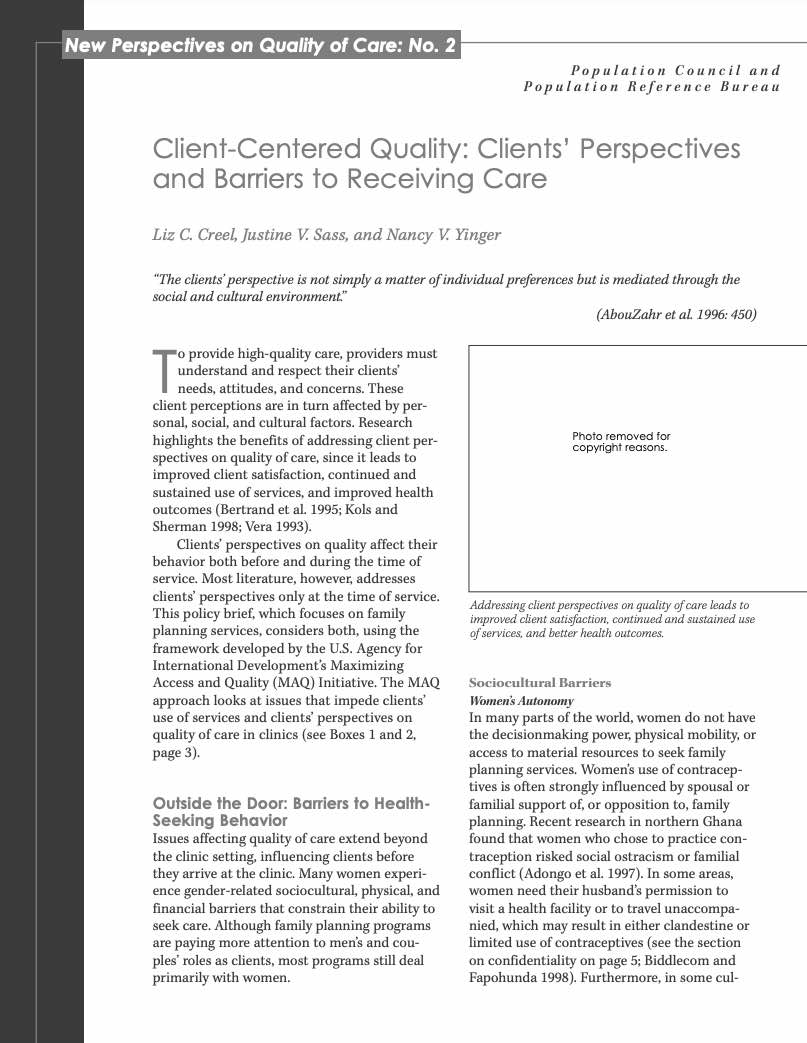Who Votes in America?
(2000) As the presidential election draws closer, the candidates are paying attention to key demographic groups. But which groups are likely to cast votes in the presidential election?
(2000) As the presidential election draws closer, the candidates are paying attention to key demographic groups. But which groups are likely to cast votes in the presidential election?
(2010) Over the past 20 years, the number of Latino children under age 18 living in the United States has doubled, making them one of the fastest-growing segments of the national population.
(2011) Despite the recent attention to ending early marriage around the world, married adolescents remain invisible to many policymakers and program developers.

To provide high-quality care, providers must understand and respect their clients' needs, attitudes, and concerns. These client perceptions are in turn affected by personal, social, and cultural factors.
(2010) Cette année, la Journée Mondiale de la Santé (7 avril) se concentre sur l’importance de la santé urbaine. L’urbanisation advient si rapidement dans certaines régions du monde que les villes ne sont pas à même de répondre aux demandes accrues de services liés à l’environnement, la santé et l’éducation, sans oublier les besoins en matière d’emploi, de logement et de transport d’une population qui pourrait doubler en moins de 25 ans.
Project: IDEA: Informing Decisionmakers to Act
(2014) In 2012, the government of Kenya passed a landmark policy to manage its rapid population growth. The new population policy aims to reduce the number of children a woman has over her lifetime from 5 in 2009 to 3 by 2030.2
(2000) The current period of rapid population growth will continue for at least another 50 years, according to the 2000 World Population Data Sheet of the Population Reference Bureau. By 2050, the world is expected to add 3 billion more people to reach a total of 9 billion.